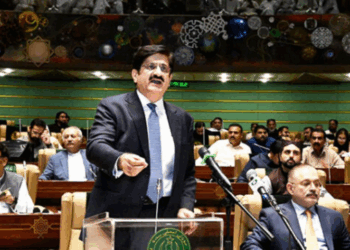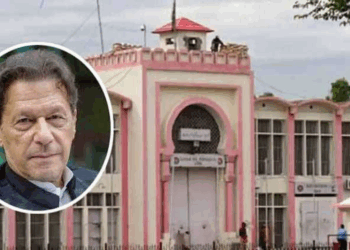Islamabad, June 5, 2025: Prime Minister Muhammad Shehbaz Sharif on Thursday strongly condemned India’s unilateral suspension of the Indus Waters Treaty (IWT), calling it a “blatant violation” and an act of “water aggression” that warrants a resolute national response.
Chairing a high-level meeting on water security at the Prime Minister’s House, Sharif warned that any threat to Pakistan’s water rights would be addressed under the national security framework established on April 24. He likened the dispute to a battle for justice, stressing that the country would respond with unity, wisdom, and determination.
“This is a battle of justice. Just as we have stood united in the past, we will confront India’s water aggression with resolve,” said the Prime Minister. He reaffirmed that the 1960 treaty is a binding international agreement that cannot be unilaterally revoked, and described India’s position as “politically and legally hollow.”
The meeting was attended by Deputy Prime Minister and Foreign Minister Ishaq Dar, Chief of Army Staff Field Marshal General Syed Asim Munir, federal ministers, provincial chief ministers, the Prime Minister of Azad Jammu and Kashmir, and the Chief Minister of Gilgit-Baltistan.
In a rare show of consensus, all political and provincial leaders present rejected what they termed as India’s provocative actions, with Shehbaz welcoming the unified stance as “a reflection of our collective resolve to protect Pakistan’s water security.”
To address the crisis, the Prime Minister directed the formation of a high-level committee led by Deputy PM Ishaq Dar. The committee, comprising representatives from all provinces, AJK, and relevant federal ministries, will present funding strategies for new dam projects within 72 hours.
“We will fast-track the construction of non-controversial, consensus-based reservoirs. These are not political projects — they are a national imperative,” Sharif emphasized.
A technical briefing during the session reviewed Pakistan’s current water storage capacity and highlighted ongoing projects. The Diamer-Bhasha Dam is set for completion in 2032, while the Mohmand Dam is expected by 2027. Pakistan currently operates 11 dams with a cumulative capacity of 15.318 million acre-feet. An additional 32 dams are under construction through the Public Sector Development Programme, with 79 other projects in the pipeline.
The Prime Minister also flagged infrastructure challenges, including sediment accumulation in major dams like Tarbela and Mangla, which has reduced their storage efficiency. He urged leaders to make bold, future-focused decisions.
“We owe it to our 240 million citizens to act decisively. This is not about politics — it’s about survival. Our future generations will judge us by the choices we make today,” he stated.
Sharif also credited the Finance and Economic Affairs ministries for securing funding from the World Bank and Asian Development Bank, despite India’s lobbying efforts to block support.
“India tried for three days to sabotage our ADB funding, but failed. Our diplomatic victory is proof of Pakistan’s principled stance and growing international credibility,” he said.
Concluding the session, the Prime Minister expressed full confidence in the solidarity of Pakistan’s civil and military leadership. “Just as our armed forces stand firm in battle, we must now stand united to secure every drop of water for our people,” he declared.
Among the key attendees were Defence Minister Khawaja Muhammad Asif, Planning Minister Ahsan Iqbal, Law Minister Azam Nazir Tarar, Information Minister Attaullah Tarar, Power Minister Owais Leghari, and Water Resources Minister Muneeb Wattoo. Chief Ministers Maryam Nawaz (Punjab), Murad Ali Shah (Sindh), Ali Amin Gandapur (Khyber Pakhtunkhwa), Sarfraz Bugti (Balochistan), AJK Prime Minister Anwarul Haq, and GB Chief Minister Gulbar Khan also participated.








